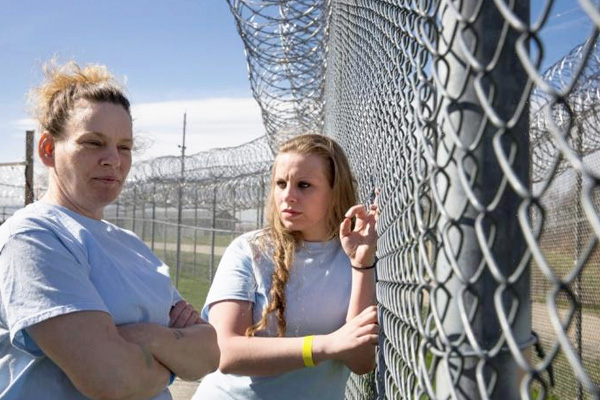MOVIES ARE REAL –
Oct. 7, 2021 – Oddly, the pair — scrappy soul sisters more than mother and daughter — seem at peace with their incarceration. And when it’s time for Jacinta to leave, both women teeter from ambivalence to desperation.
The remainder of the film grapples with an issue that might seem counterintuitive to the average viewer: Why might Jacinta dread her freedom? It’s not a simple answer, but the director, Jessica Earnshaw — a photographer turned documentarian who followed Jacinta over three years — responds generously by unfurling a long history of inherited trauma and regret. Earnshaw’s lo-fi, vérité approach gives the documentary the impression of a collection of home videos tracing Jacinta’s post-prison journey. Though she strives to stay sober for the sake of her doting daughter, Caylynn, who lives with her grandparents in the New Hampshire suburbs, home is with her father in a mill town bursting with familiar faces tempting her to relapse. As Jacinta gradually succumbs, Earnshaw weaves in interviews, often in voice-over, with Jacinta’s close ones that explain her early run-ins with the law, her experiences with sexual abuse, and her unwavering admiration for her mother, who taught her to fight, shoplift, and use drugs.



